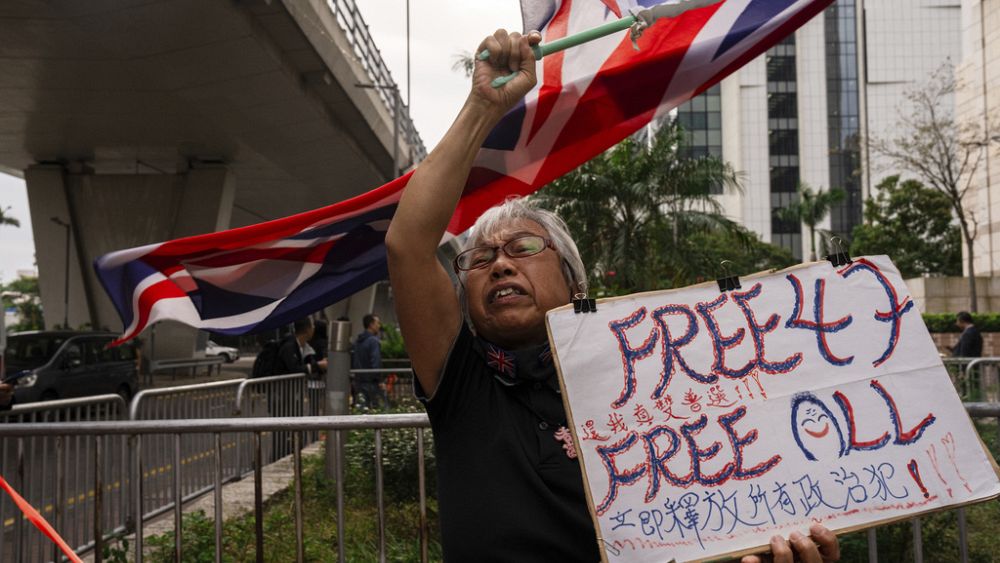47 people are accused of violating Hong Kong’s national security law.
The largest trial of pro-democracy activists in Hong Kong, which must judge around fifty defendants, entered its home stretch on Wednesday with the opening of the final debates, more than 1,000 days after the start of the case .
The 47 defendants are being prosecuted for violating Hong Kong’s harsh national security law and face life sentences.
This affair has become, for opponents of the takeover of the territory by Beijing, the symbol of the criminalization of dissent in Hong Kong.
It is also the largest trial of pro-democracy activists in Hong Kong since the territory was handed back to China in 1997.
In the dock include pro-democracy activist Joshua Wong, law professor Benny Tai as well as two former MPs, Claudia Mo and Au Nok-hin. The 47 defendants represent a broad cross-section of Hong Kong’s opposition.
All face life in prison if found guilty of “conspiracy to overthrow state power” for having organized an unofficial primary election in July 2020 intended to select opposition candidates for the legislative elections.
A long-time activist, nicknamed “Grandma Wong”, demonstrated outside the court on Wednesday with the British flag in hand and a sign: “Free the 47, free them all.”
“I hope they can be released immediately”, she told AFP. They wanted “true universal suffrage, there was no other reason, it was not a question of taking power”.
According to prosecutors, the defendants sought to gain a majority in the city’s partially elected Assembly to threaten to block the budget vote if the government refused to respond to demands. “five requests” pro-democracy protesters of 2019.
Demands included an independent investigation into alleged police brutality against protesters and universal suffrage for local elections.
The activists intended, according to the prosecution, to potentially force the resignation of the then pro-Beijing leader of Hong Kong, Carrie Lam.
Hong Kong’s mini-constitution, drawn up during the city’s handover from the United Kingdom to China in 1997, allows the chief executive to dissolve the assembly if the budget is vetoed.
On the other hand, if the newly elected deputies veto the budget again, the city’s executive head must then resign.
“Conspiracy”
All 47 defendants were jointly indicted in March 2021. Most were denied bail and 31 pleaded guilty.
The trial was held without a jury, at the request of the Hong Kong Minister of Justice who invoked “the involvement of foreign elements” for not applying the tradition of trial by jury of “common law”, a judicial system inherited from the British.
Three judges chosen by the government were appointed.
Lead prosecutor Jonathan Man argued Wednesday that the activists should be convicted even in the absence of violence.
“We are talking about a plot to get MPs to veto the budget indiscriminately”he said, emphasizing that the national security law must be interpreted strictly.
In October, a group of United Nations human rights experts expressed concerns about the trial.
“We are very concerned about the use of mass trials in cases concerning the national security law”and by potential breaches of due process and the right to a fair trial, they said.
Lawyers and the prosecution are expected to present their final arguments for ten days before the court withdraws and delivers its verdict.


